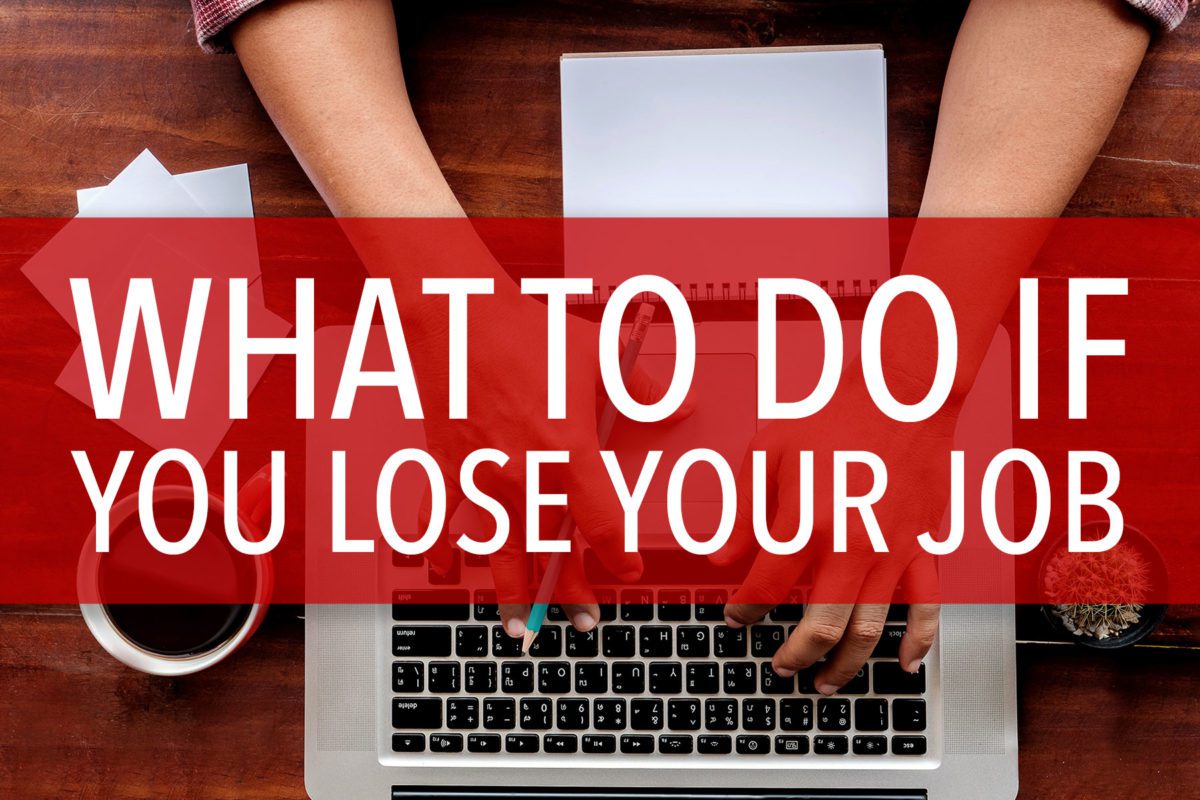
Losing your job, whether you have advance notice or not, can be a traumatic event. In addition to immediate financial and practical needs, you should also attend to your own mental and emotional health in the immediate aftermath of a job loss.

You’ll likely want to take practical steps right away. First, try to understand why you were let go and what to expect in your personnel file. You may want to consult with an attorney before signing any paperwork from your employer. At the very least, carefully review anything you are asked to sign and don’t be afraid to ask questions. File for unemployment and explore your health insurance options. If necessary, work with your bank and other creditors to deal with debt obligations.
At the same time, pay attention to your mental and emotional health. In addition to being a source of income, research from Marie Johoda shows that jobs fulfill five specific life needs: time structure, social contact, collective purpose, status and activity. Left suddenly without a job to anchor our lives, we can experience feelings of isolation and a lack of purpose, ultimately contributing to poor mental and physical health.
The key to weathering a job loss is to find anchor points outside of work:
- Time structure: Keeping a regular schedule is essential. Set up a daily schedule, allocating time for job hunting, building skills, exercise, and social activities. Some job seekers also find the added structure of a part-time job helpful.
- Social contact: People often feel guilty or embarrassed about having fun or socializing while unemployed, but focusing exclusively on your job search can be isolating. Interacting with others keeps you engaged socially and helps build your network. Look for free or low-cost social events, community education classes or meet-up groups. Even going to a coffee shop to work on your job search, rather than doing so alone, can make a difference.
- Collective purpose: Losing a job can mean losing a sense of purpose in your day-to-day life. Consider getting involved in a cause, volunteering or helping out at your child’s school. Purpose can come from a number of places, not just our work.
- Status: Finding another source of identity is challenging because social status in the United States is so tied to employment. A key first step is learning to tell your story in a way that’s truthful and comfortable for you. You’ll likely have to tell it to friends, family and potential employers. Try to objectively evaluate what you can learn from the experience and focus on the positives you bring to an organization.
- Activity: Finally, keep yourself busy with activities that provide social engagement and a sense of purpose, two needs crucial to your well being.
Keep in mind that it’s normal to experience a wide range of emotions. If you feel angry, sad or even relieved, it’s better to deal with those emotions than to ignore them. Find supportive friends and family members or talk with a counselor. If you find yourself unemployed, the best approach is a balanced one that takes care of your physical, mental, and emotional health.
Sybil Pressprich is a career and educational counselor for the Division of Continuing Studies at UW-Madison. Pressprich helps adults with career transitions and continuing education through individual sessions and workshops. Contact her at sybil.pressprich@wisc.edu.
Additional job loss and job search resources are available on the Division of Continuing Studies website.
This article originally appeared in the Wisconsin State Journal on June 12, 2016.